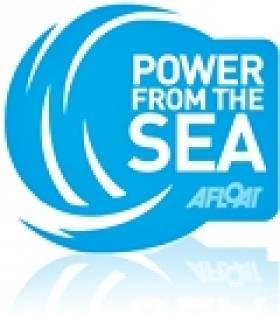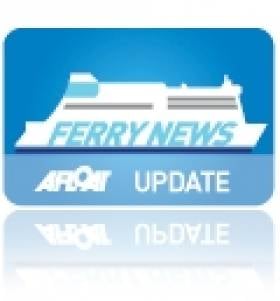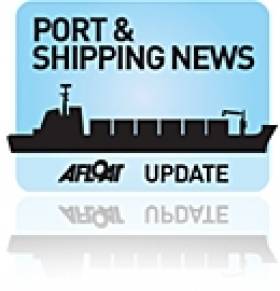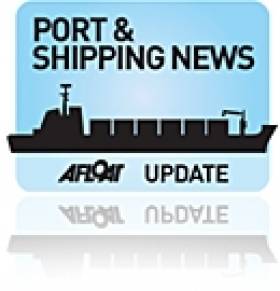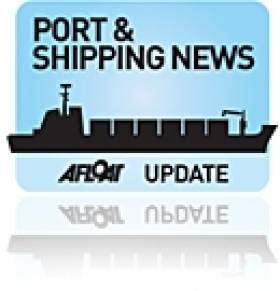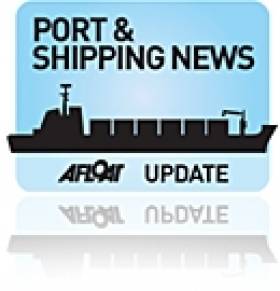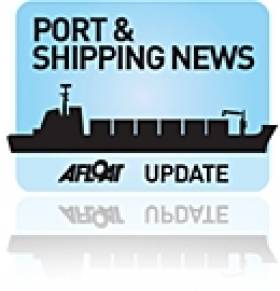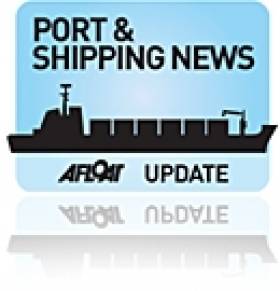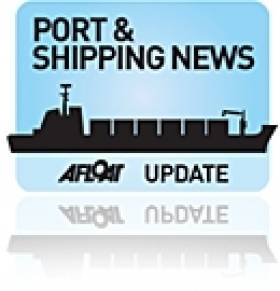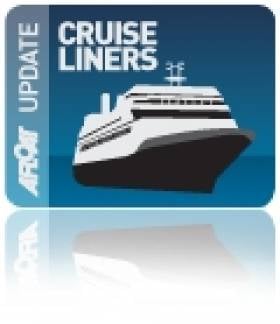Displaying items by tag: IMDO
IMERC’s Inaugural Conference 2012
#IMERC CONFERENCE - The recently established Irish Maritime and Energy Resource Cluster (IMERC) which is to promote the country as a world-renowned research and development location, is to host next month its inaugural conference entitled 'Maritime Geostrategic Thinking for Ireland'.
Minster for Marine, Simon Coveney T.D. will address the conference at the National Maritime College of Ireland (NMCI), Ringaskiddy, Co, Cork which is to be held on Friday 9th March.
In addition to keynotes speakers addressing the conference are Glenn Murphy (IMDO), Commodore Mellett of the Naval Service, Anthony Gurnee from Ardmore Shipping, Helen Noble, Head of Maritime Law at Matheson Ormsby and Prentice and Professor D John Mangan from the University of Newcastle.
Below is a programme schedule of the conference and additional information and link.
Session 1: Fighting recession by supporting an export led economy
Session 2: Building maritime security capability in support of economic development
Session 3: Future of Maritime Ireland
Session 4: IMERC Industry Engagement
To make a booking and receive further details on the conference contact IMERC Tel: (021) 433 5717 or by clicking HERE.
IMERC is based on the campus grounds of NMCI which is located between the Naval Service Base on Haulbowline Island and the neighbouring ferryport in Ringaskiddy.
Under phrase 1 of IMERC's campus development plans, it aims for the construction of the UCC National Beaufort Centre by May 2013. Phase 2 of the campus is for an extended maritime and energy science and commercial park located on the adjacent Port of Cork owned landbank.
Irish Ferries Win Best Ferry Company
#FERRY NEWS- Irish Ferries has won the 'Best Ferry Company' award at the Irish Travel Agents Association travel industry awards held last night in the Mansion House, Dublin.
This was the thirteenth time that the award has gone to Irish Ferries since the event started two decades ago. The award which was presented on foot of votes cast by travel agents and their staff employed throughout the island of Ireland was accepted jointly by its head of passenger sales Declan Mescall and passenger sales manager Marie McCarthy.
Thanking travel agents for the honour their decision bestows on the company, Mr. Mescall said that the Best Ferry award reflects the high standard of service which passengers can now expect from Irish Ferries.
'In addition, it recognises the numerous developments that have taken place in the company in recent times, including the introduction of class leading advances in electronic communications, the most recent being the introduction of the industry's first bookable smart phone app which was launched just months ago' said Mr. Mescall.
The award follows Irish Ferries parent company Irish Continental Group (ICG) whose Dutch based container division Eucon Shipping and Transport was awarded Short Sea Shipping Company of the Year Award 2011, sponsored by the Irish Maritime Development Office (IMDO).
Eucon operate regular feeder services to Antwerp, Rotterdam and Southampton from the ports of Belfast, Dublin and Cork.
Port & Shipping Volumes Continue Slowdown in 3rd Quarter
#PORTS & SHIPPING- The volume of shipping and port traffic through the Republic of Ireland continued to decline during the third quarter of 2011, according to the latest analysis of traffic figures released by the Irish Maritime Development Office (IMDO).
Results from third quarter data indicate that only 1 of the 5 principal freight segments had any growth over the third quarter, while all other segments declined compared to the same period last year as outlined below in the key third quarter data:-
• Lift-on/Lift-off (lo/lo) trades were down 5%
• Roll-on/Roll-off export traffic was down by 2%
• Dry bulk volumes increased by 2%
• Break bulk volumes were down by 3%
• The Tanker/Liquid bulk market was down 7%.
For a more in-depth analysis of each freight-transport mode issued by the IMDO and accompanied by graphic charts click HERE. In addition to compare the 3rd quarter figures with the previous 2nd quater for this year click HERE.
Export Industry Awards to Deep and Short Sea Shipping
Eucon Shipping and Transport Ltd won the Short Sea Shipping Company of the Year Award 2011, sponsored by the Irish Maritime Development Office (IMDO), which recognises the strategically important role of short sea shipping to our economy. Eucon offers Irish exporters access to worldwide markets via its regular feeder services to Rotterdam, Antwerp and Southampton operating from the ports of Dublin, Cork and Belfast. The other nominees were: CLdN RoRo S.A. and Grimaldi Lines.
In the category for the Logistics Company of the Year Award 2011, sponsored by Dublin Port Company, the award went to Caffrey International. The Co. Meath based company is a specialist provider of road transport and logistics services between Ireland, the UK and continental Europe.
The award recognises the importance of logistics and supply chain management firms to the exporting effort of companies trading internationally from Ireland. The other nominees were: DHL Global Forwarding (Ireland) Ltd., Dublin; Eucon Shipping and Transport Ltd. and Geodis Ireland Limited, Dublin.
ABC Nutrition of Shannon was presented with the overall award of the Exporter of the Year Award 2011 after winning in the Emerging Markets Exporter Award, one of twelve categories which were presented at the ceremony.
Applications for Short Sea Shipping Company of the Year 2011
Organised by the IEA in conjunction with the IMDO, the competition recognises the outstanding achievements and innovative activity of Short Sea Shipping companies in supporting Irish export industry through efficient import processing as well as export processing services.
The awards search is to culminate with a gala awards ceremony held in the National Convention Centre in Dublin's docklands on 11th November.
Applications forms to enter the category of The Short Sea Shipping Company of the Year 2011 are available on the IEA website; www.irishexporters.ie
Further information about the Export Industry Awards, in addition to information around export supports can also be found on www.irishexporters.ie or email: [email protected]
Port and Shipping Volumes Show Second Quarter Slowdown
Below is a list of figures for each transport mode based for the second quarter of 2011.
•Lift-on/Lift-off (lo/lo) trades remained static at 0%.
•Roll-on/Roll-off (ro/ro) export traffic was down by 1%.
•Dry bulk volumes increased by 5%,
•Break bulk volumes were down by 6%
•The Tanker/Liquid bulk market was down 6%.
For more in-depth analysis of each freight-transport mode issued by the IMDO and accompanied by graphic charts click HERE.
Shipping Volumes Up in First Quarter
First quarterly figures for 2011 show that volumes of shipping and port traffic on the majority of principal sectors grew, according to the Irish Maritime Development Office (IMDO).
The figures below outline a moderate trade volume growth in four out of the five key freight segments: Lift-on/ lift-off (lo-lo), Roll-on/Roll-off (ro-ro),dry-bulk, break-bulk and the tanker/liquid market.
• Total lift-on/ lift-off (lo/lo) trades volumes grew by 3%.
• Roll-on/Roll-off export traffic was also up 2% per cent on an all island basis.
• Dry bulk volumes through ROI ports increased by 21%,
• Breakbulk volumes were also up 25%
• The tanker/liquid market was the only sector to record a decline, down by -12% compared to the same period last year.
For further information about the figures, charts and a summary released from the IMDO click here
Speaking at the ceremony Mr. Murphy commented: "d'Amico Group are one of a leading number of firms that are driving investment in this sector in Ireland which is contributing to new employment and growth opportunities".
Entry of the new dry-bulkers marks another important chapter in the d'Amico Group's development since it established its Irish office in 2002, as the vessels are managed from its Dublin office under the Irish Tonnage Tax (ITT) regime.
Four more newbuilds are under construction in Korea, scheduled for delivery in 2012, and two under construction in Japan which are due in 2013. The latter ships represent a further investment in excess of US $310 million to the Italian company that began and grew as a family business in 1936.
To read more about this logon to the IMDO website and also www.damicoship.com
The act is designed to assist in securing the future of the Irish shipping sector in which five new companies in 2010 entered the scheme, generating an increase of 44% in the number of vessels (from 154 to 177) covered by the Tonnage Tax. Half of these vessels range less than five years old with the total average age at eight years.
In addition the initiative has directly created 314 jobs in 2009 to nearly 350 jobs last year. Most of the employment is in specialised areas such finance,technical management, operations and chartering.
Commenting on the data, IMDO Director Glenn Murphy said "The results are a positive indication that after long periods of decline for the industry that policy support measures have encouraged investment which has led to growth and new employment. We are optimistic that direct employment
in the high value professional shipping services sector could double over the next five years leading to further investment and job creation opportunities"
The majority of Irish-based ship-owning firms operating within the ITT scheme are not entirely reliant on the Irish economy for their daily core revenue streams but are instead employed in the international shipping markets.
In 2010 the global shipping business had total charter trading transactions estimated at $450 billion dollars. It was a year in which the shipping markets continued to be quite volatile with most sectors still recovering from large charter earnings declines over the previous 12 months. Overall Irish firms were quite resilient in their ability to compete last year.
The growth in this sector in Ireland has been driven by established Irish-owned companies Arklow Shipping Ltd (ASL) and the Mainport Group and inward investment has come from D'Amico and Ardmore Shipping. The chemical and products tanker fleet operator located its headquarters to Cork last year and the company is backed by a large US private equity firm.
To read more from the report, you can request a copy by contacting the IMDO by e-mailing [email protected]
Cruise-Callers Set to Start Summer Season
Dublin Port last year had 88 cruisecalls and this number of vessels is to be closely repeated in 2011. One of the calls will be Princess Cruises 3,100 passenger Grand Princess. This was the first cruiseship of over 100,000grt to dock at Dublin which arrived on 31 August 2004 (click for photo on the day) and to read more about the cruiseship industry in Ireland from the IMDO click here.
Outside the capital the following vessels outlined are the first cruiseships to call at other ports in April. The season runs to September, though in recent years occasional calls are still made up to November.
The first cruise-caller at Waterford is Quark Expeditions adventure exploration vessel Ocean Nova. At only 2,118 tonnes the diminutive vessel is only 73m long and equally has the same number of passengers and a crew of 38.
Built in 1992 the polar adventure vessel has an ice-strengthened hull to enable the exploration of the icy waters of Greenland, the Weddell Sea and the Antarctic. A pair of Zodiac craft are provided for shore-landings.
The hosting of the Waterford Tall Ships Race Festival has led to funding of €1.7m from Failte Ireland to upgrade the city-centre's Frank Cassin Wharf. This will allow the large 'A' class tallships to berth and will be a lasting legacy of the festival. The wharf will then be used to berth cruiseships and other marine users. In total the crystal city is to welcome 12 callers to include the Crystal Serenity in July.
Cork is set to welcome 54 cruisecalls to include the return of the Cunard Line's 90,000grt Queen Victoria which made her first call to Cobh last year. The 2007 built vessel has a guest capacity for 2,000. The Cunard flagship Queen Mary is scheduled mid-September.
The deepwater berth at Cobh Cruise Terminal is capable of handling some of the largest cruiseships and which will see the return of the 122,000grt Celebrity Eclipse also in April.
Celebrity Eclipse made her maiden cruise and port of call to Cobh last year following her high profile repatriation voyage from Spain with stranded UK tourists arising from the fallout of the Icelandic volcanic ash-cloud. The 2,850 passenger €500m cruiseship which made an overnight call at Cobh during the May Bank holiday weekend.
From the south to the north at Belfast, the port's first caller on 24 April is the Ocean Nova which makes another appearance on the Irish cruiseship scene.
Belfast Harbour Commissioners have developed the 1km long Stormont Wharf to attract increasingly larger cruiseships to the city. The Ocean Nova's visit will mark over a dozen years since the first cruiseship docked in the northern capital.
In 2011 Belfast is scheduled to accommodate 30 cruise-calls bringing over 50,000 passengers to the city and surrounding environs.


























